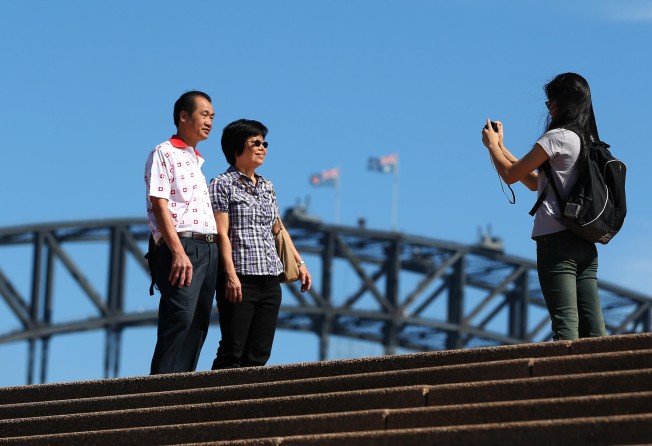China's hotel investors and operators have mismatched expectations
Longer-term management contracts are needed as operators and investors have different perceptions of risks and rewards of business

China's middle classes are spending a growing portion of their hard-earned cash on travel, both domestically and internationally. Australia alone welcomed 650,000 Chinese visitors last year, where they spent more per person than tourists from any other country.
Within China, domestic tourism nights are now close to two visitor nights per capita per year, and if China's domestic and outbound tourism follows the growth pattern seen previously in Asia's newly industrialised economies, then this boom has a long way to run.
Unsurprisingly, the major global hotel brands and many new and boutique players are all working hard to expand their presence in the market, with the dual aim of profiting from the domestic tourism boom and raising brand recognition amongst Chinese travellers as they head overseas in greater numbers.
Despite, or perhaps because of, this rapid growth, some frictions have emerged between the brands that operate hotels and the developers and investors who construct and own the majority of properties. Essentially, operators and investors have very different perceptions of the risk and rewards in the hotel business, and this mix is further complicated by the even greater distortion in value perceptions held by many local governments in China.
Of course deals are being done and hotels are being constructed and the big operators are expanding their chains across China. The concern is not that this hotel boom will end in the short term, but that mismatched expectations will create long-term frictions that may impact on the financial sustainability of the hotel sector.
Put simply, many investors feel that in the current market they, or the initial project developer, are taking a disproportionate share of the risk inherent in any business venture. Many believe that hotel operators simply want to ensure a guaranteed financial return and don't place enough emphasis on maximising either short-term cash flow or long-term site value.
From the operators' point of view, they are adding the most value to a site, while investors reap most of the financial returns. In addition, many hotel brands are concerned that prime sites are not being offered to them, but only less attractive ones suitable for lower-grade operators.
Although these are extreme characterisations of the differing viewpoints of hotel operators and owners, they do reflect a reality rooted in the well-known principal-agent problem. While the principal-agent problem occurs everywhere in the hotel business, there are four elements that exacerbate the concern in China:
-
First , given the rapid growth of the market and the relatively low hotel occupancy rates compared to the hotel sector in other major economies, the gap between current and expected future financial performance is relatively large;
-
Second, with the hotel chains still studying the domestic hospitality market and learning about the needs of their Chinese guests, there remains a problem of asymmetry of information between a developer, who may be well established in a local market, and a hotel operator undertaking the operation of their first property in a city;
-
Third, with many Chinese cities rapidly changing, with new transport systems, office parks and satellite cities emerging, today's underperforming site may be tomorrow's prime location; and
-
Finally, as hotel operators move beyond tier-1 and tier-2 cities, they often encounter policy-led decision making, for example a local government insisting that a site include a five-star hotel where there is clearly no market demand.
Although there are some particular aspects to the relationship between hotel operators and owners in China, the agency-principal problem is an inherent part of the hotel business anywhere in the world and will always be a source of ongoing tension in the hotel business.
However, there are some practical ways that developers and operators can help to reduce the differences in perception between different market players.
In order to better align the interests of operators and investors, and to overcome the fact that the dynamics of the market and Chinese cities are changing quickly, a move towards longer-term management contracts could help to better align operator and owner incentives. While management contracts tend to be shorter than in Europe or America, there are ways to overcome reluctance to signing longer term management contracts.
Innovative arrangements can include more flexibility to renegotiate terms in the out years of the contract or to include rights of first refusal in renewal contracts.
At the strategic level, it may also be time to begin involving hoteliers, either directly or through consultants or industry associations, in the urban planning process. Experienced hotel operators, or their representatives, are in a good position to advise on the increasingly homogenous requirements for security, location and integration of hotels into surrounding developments.
On the other side of this equation, increased flexibility in the planning process, and the reservation of suitable sites for hotels, which the Hong Kong government has recently done, would ensure that the most appropriate sites are available for hotel development.
Finally, it is perhaps time for operators and owners to look at more strategic ways of working together.
While formal partnerships covering the whole of China will not suit the needs of most market participants, new approaches such as multi-site contracts or collective data management could help to build trust and reduce information asymmetry.
Overall, the outlook for the hotel market in China is still positive, despite some pockets of oversupply. But to ensure the long-term stability and sustainability of the sector, it is time to look at new approaches to better align the interests of operators and managers.
Adam Rush is a director of DTZ's consulting department, North Asia